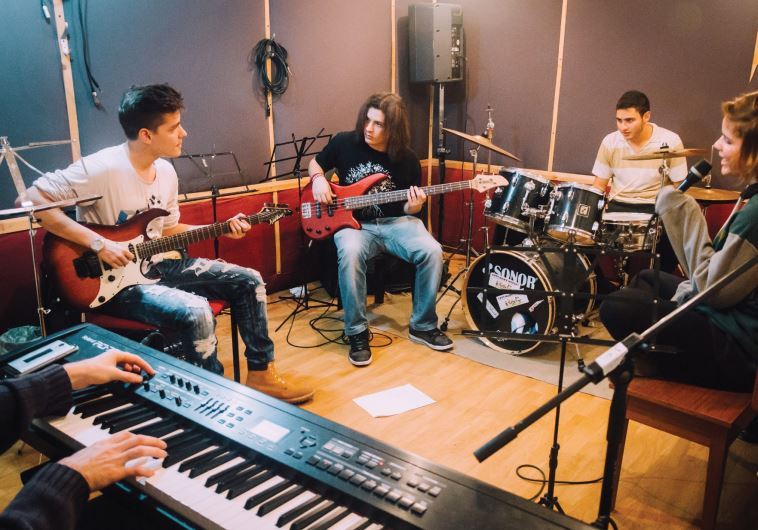The sounds of music in Jerusalem
More than just a school of rock, Lenagen Bekef teams up budding musicians and turns them into performers.
 ASPIRING MUSICIANS of all ages rehearse and learn at Lenagen Bekef music school in Jerusalem.(photo credit: YELENA KVETNY)ByARIEL DOMINIQUE HENDELMAN
ASPIRING MUSICIANS of all ages rehearse and learn at Lenagen Bekef music school in Jerusalem.(photo credit: YELENA KVETNY)ByARIEL DOMINIQUE HENDELMAN